In eastern DR Congo, violence against girls and women is referred to as a weapon of war.
Ten kilometers from the frontlines in eastern DR Congo, there are two camps for people who have all been forced to flee. Even in a camp for displaced persons, there are children to care for, meals to cook, and firewood to gather. Everyday tasks are marked by fear and the constant struggle against hunger. Especially as a woman, moving around alone comes with great risks.
Meet six women and girls living in the camps who have shared their stories of the sexual violence they have endured. They are between 10 and 40 years old and were raped by armed men while searching for food or firewood.
Due to the sensitive nature of their stories, we use the women’s first names or fictional names. In some cases, place names have been omitted for safety reasons.
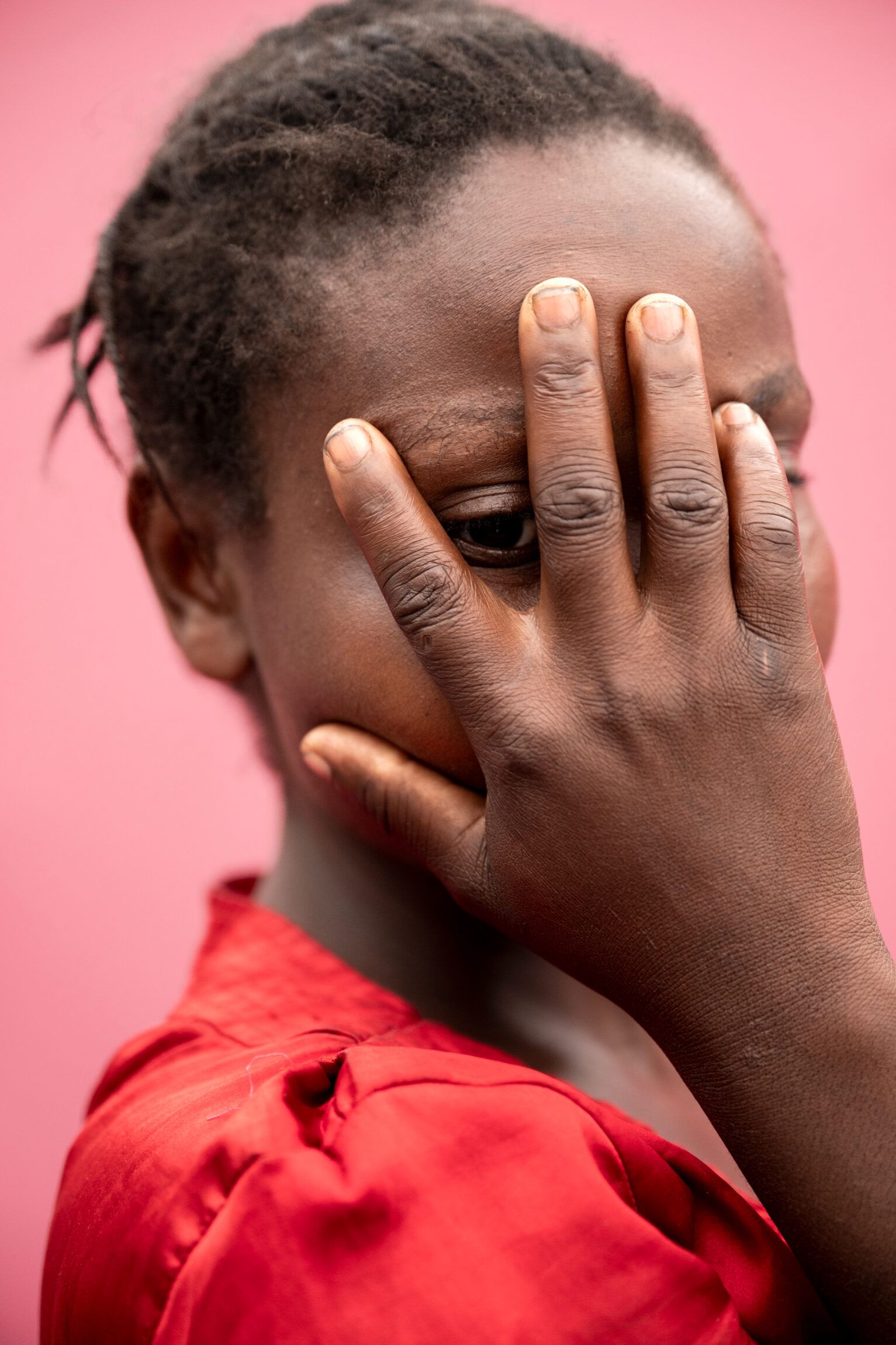
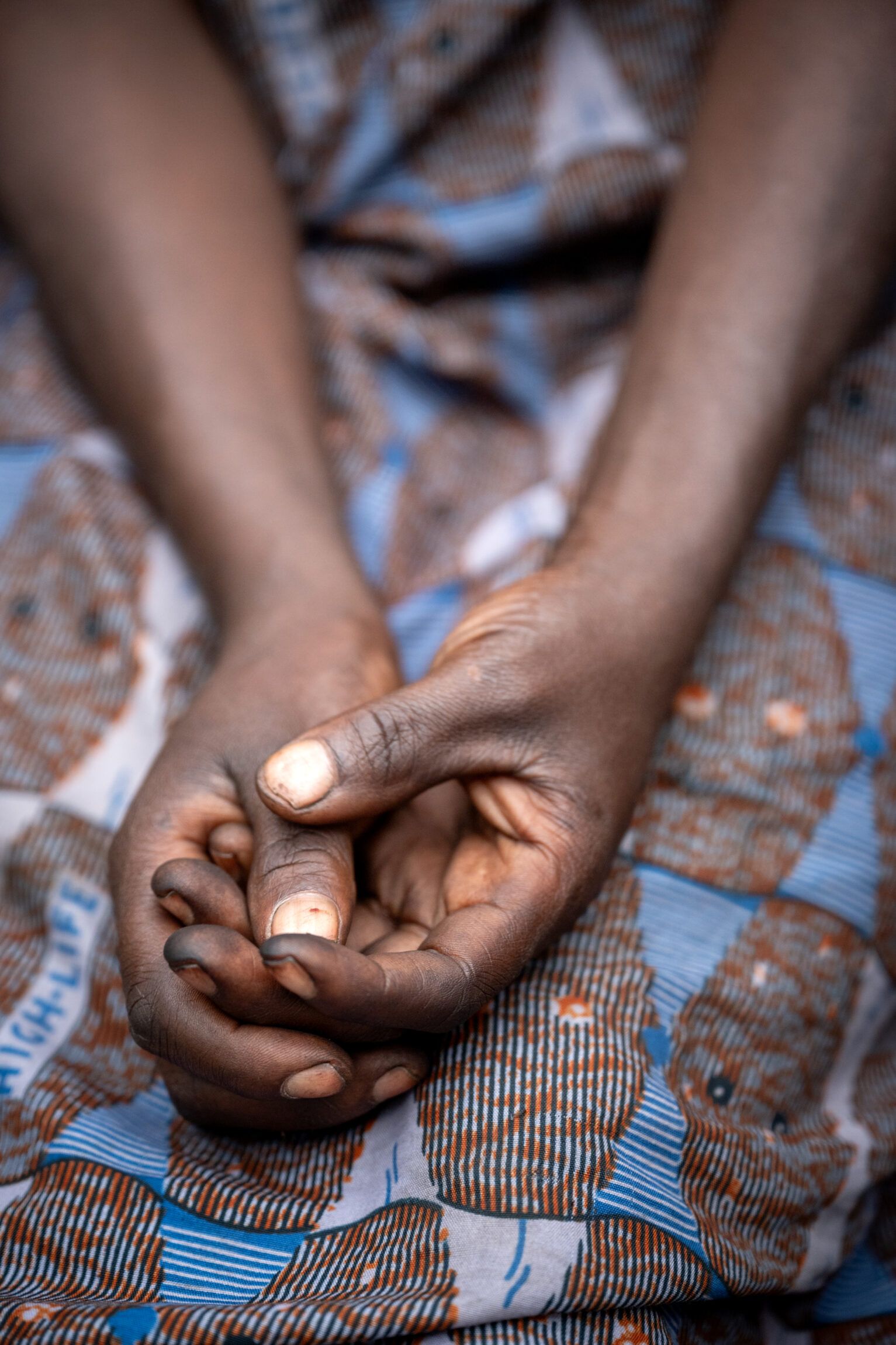
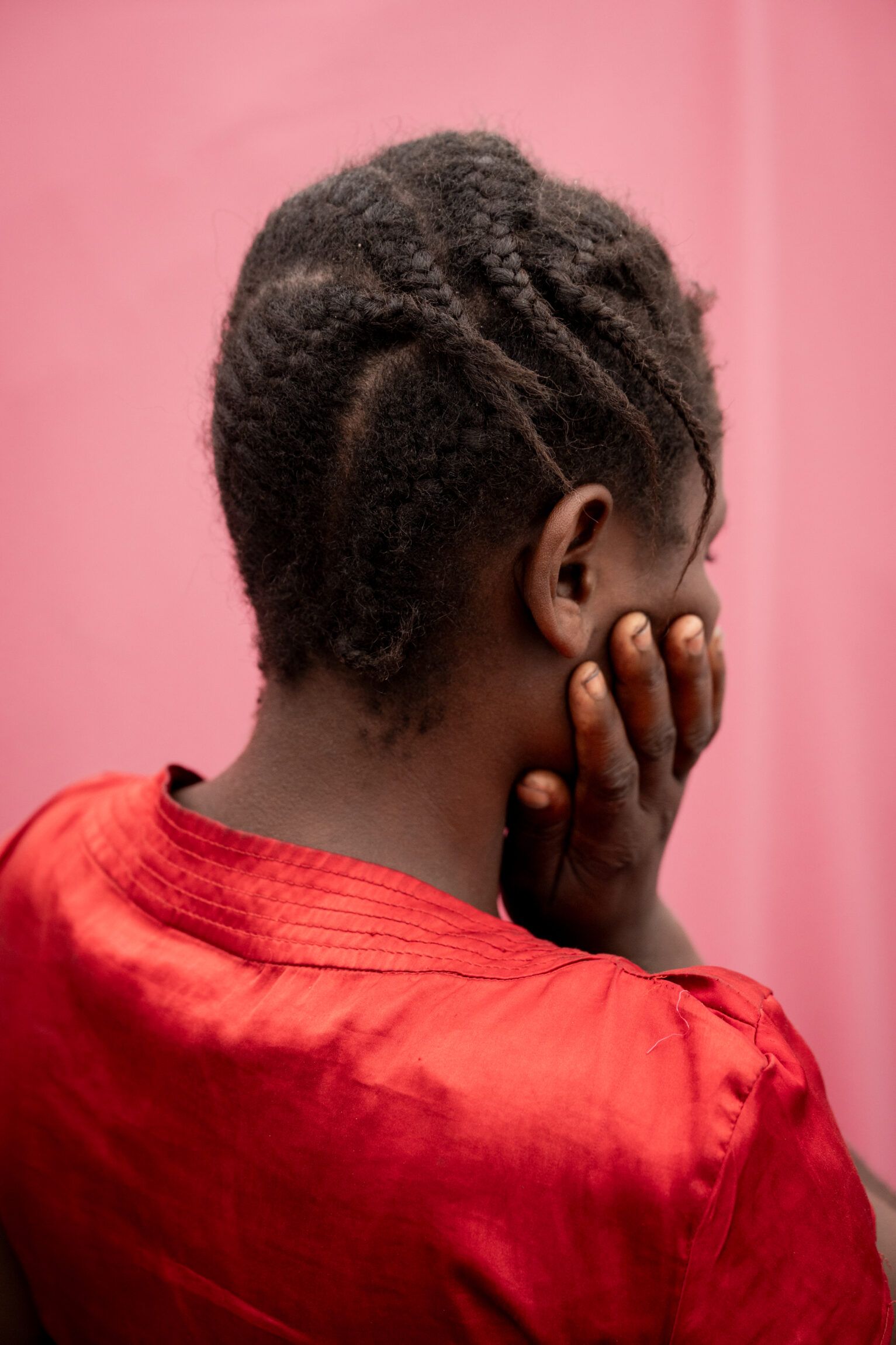
22-year-old Yumiliya and 40-year-old Nyira
Yumiliya
I still feel ashamed. I can’t talk to others about it because I’m afraid they will laugh at me. And we’re afraid that the men might come back and kill us here in the camp if we speak about it.
Women in the camps often survive by selling wood, charcoal, and water. Neighbors Nyira and Yumiliya explain that in March, they went out together with three other women to search for firewood.
They had to travel far from the camp, so they were forced to spend the night in the forest on their way back. During the night, they were awakened by ten armed men with covered faces. The women recount:
They started yelling at us, and we had nothing to defend ourselves with. All five of us were raped by ten soldiers. One of the other women was killed when she tried to resist—split in two with a machete.

“I pray that my boys won’t become like the men who raped us,” says Nyira.
She lost her husband after they fled their hometown. Now, she lives in the camp with her nine teenage children.
Yumiliya is alone with her six younger siblings. Her parents passed away years ago.
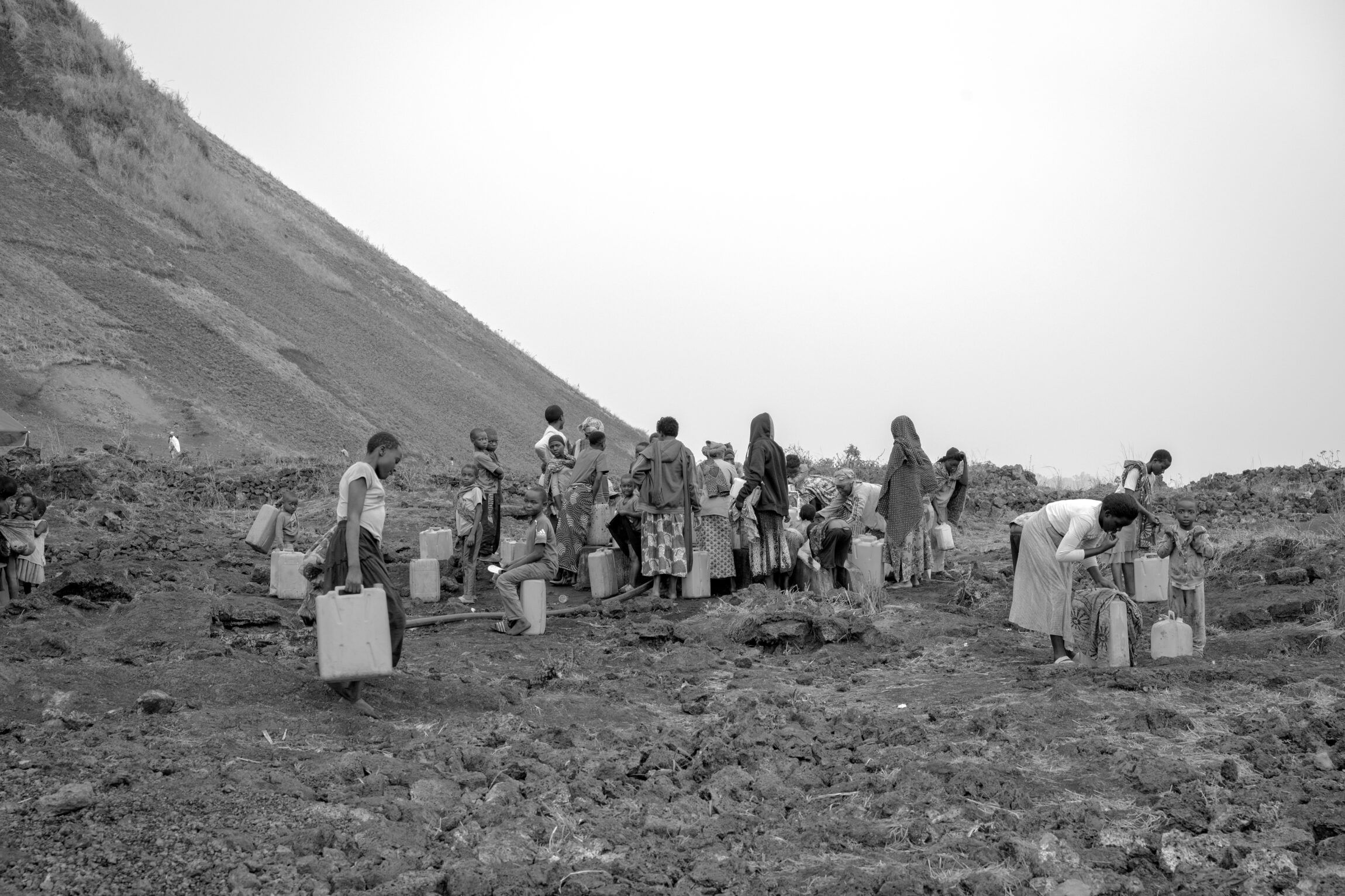
Three times a day, Nyira and Yumiliya have to fetch water from the well.
Each round trip takes four hours.
“We eat once a day — in the evening. Most of the time, we eat potatoes.”
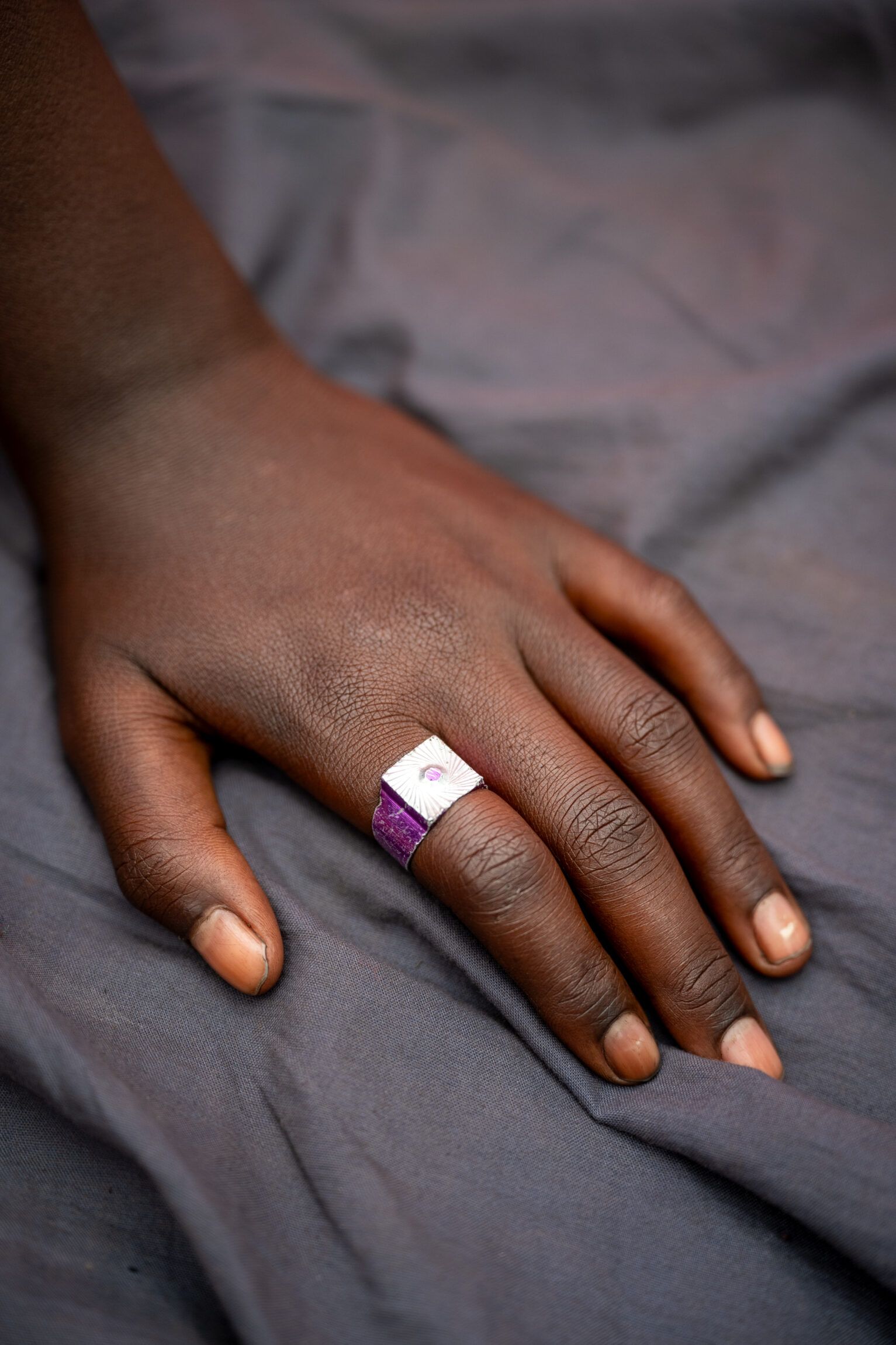
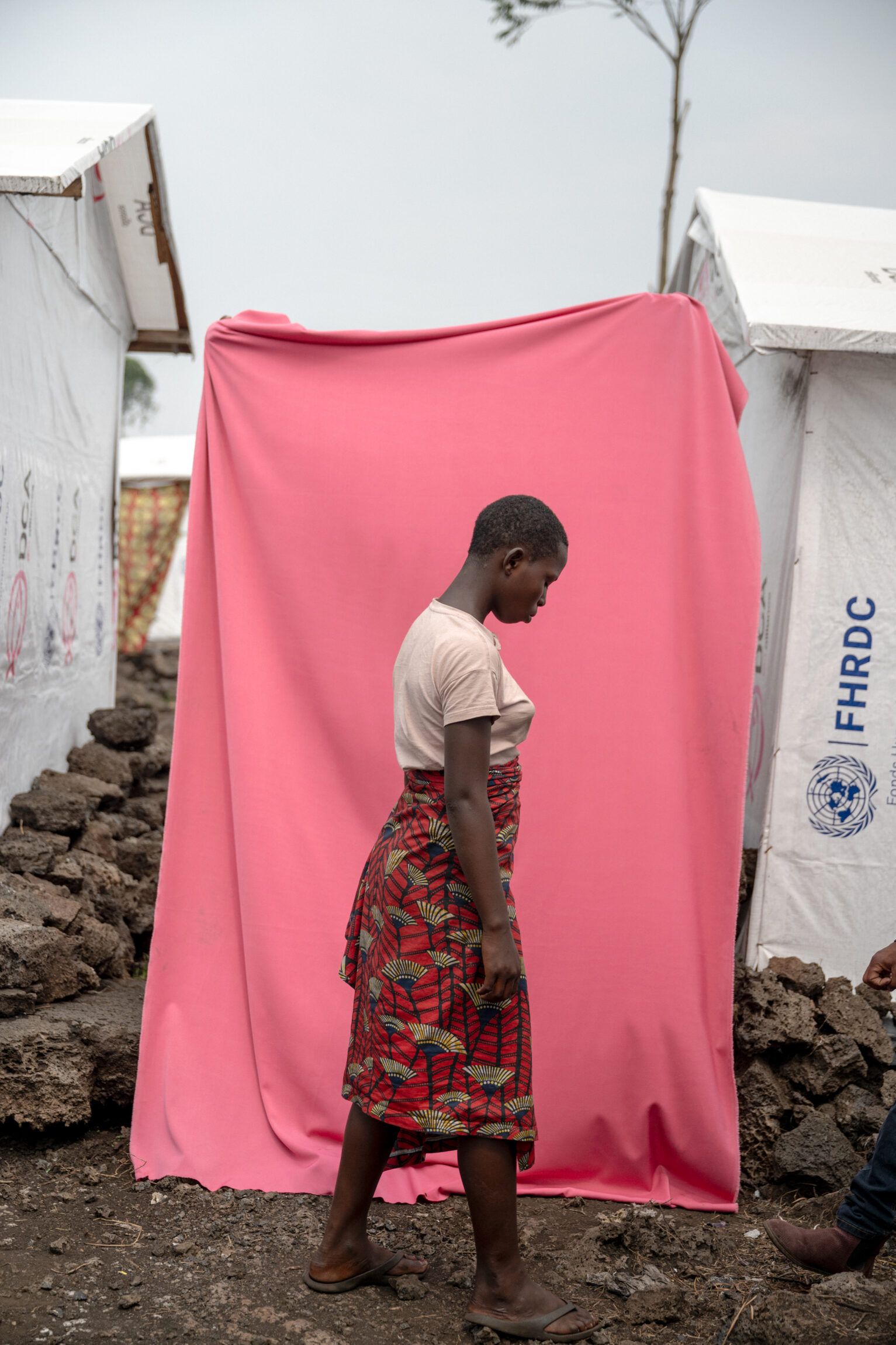
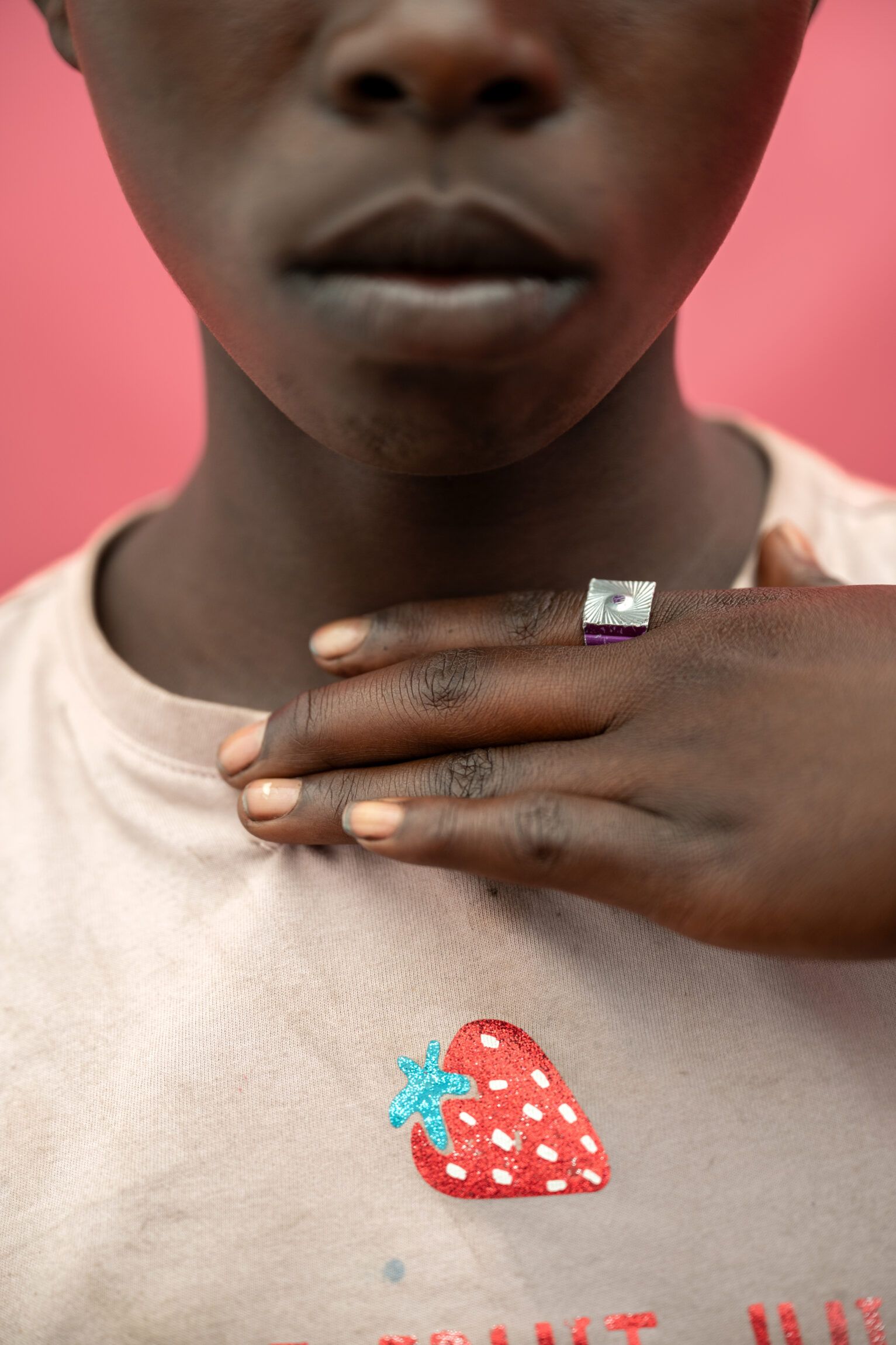
15-year-old Denise
“I don’t feel safe leaving my shelter because I am scared that any man can attack me.”Denise
Denise was assaulted in August while searching for wood in the forest. Like the other women, she is afraid of encountering her attackers again. She fears they might come into the camp to find her.
Denise has been living in the camp with her parents and eight siblings since February. Collecting wood is essential for her survival. The women use the wood for heating and as kindling when cooking. Many women also sell it as charcoal.
I hope the war ends soon so I can go back to school. I want to become a doctor or a teacher so I can help others. What I miss the most is going to school.Denise
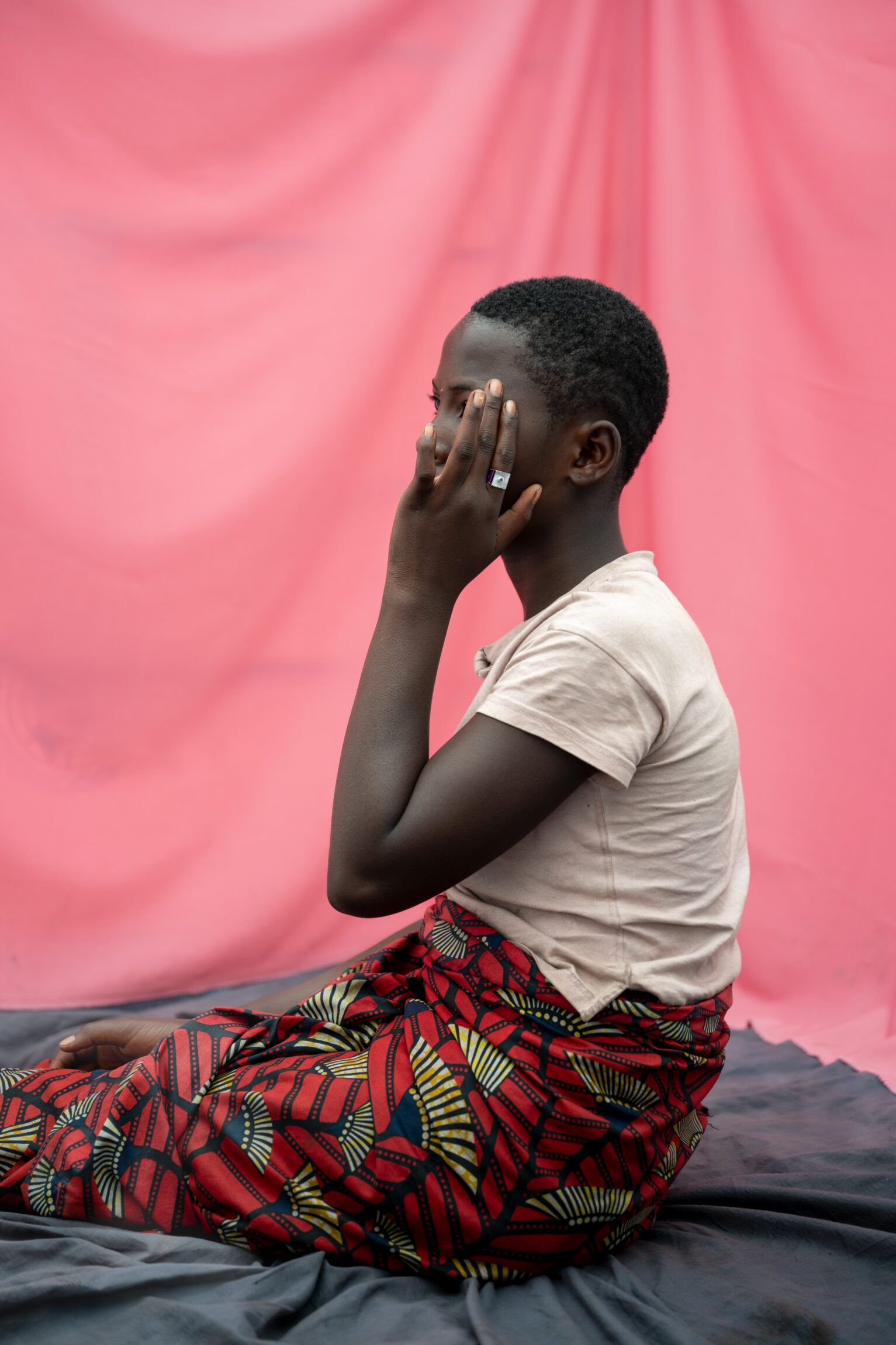
“After the assault, I felt dizzy, and I just wanted to cry,” says Denise.
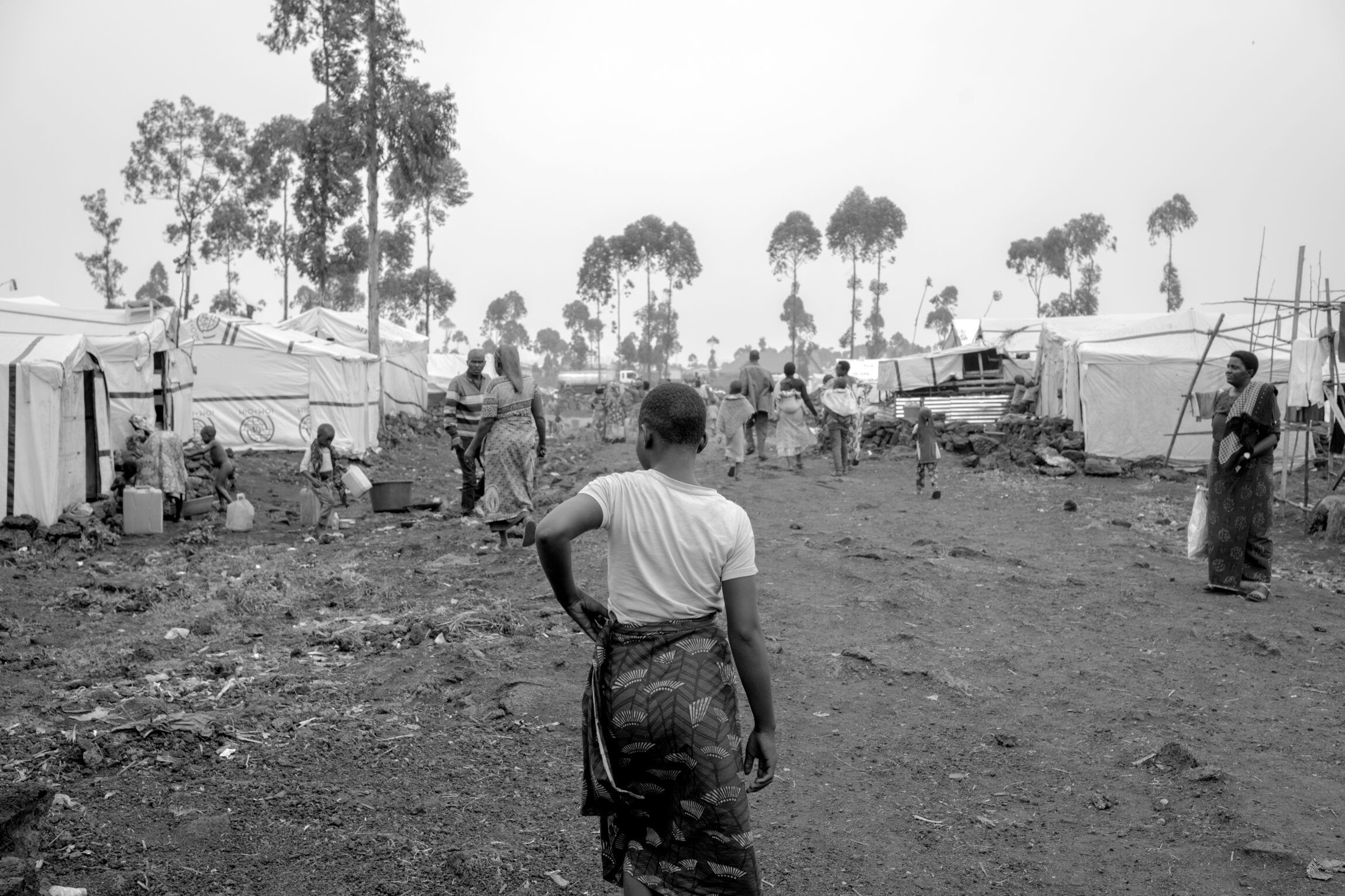
The Rusayo camp houses around 35,000 internally displaced people. In June, DanChurchAid built 2,800 shelters.
The risk of being raped is extremely high for women who venture outside the camp. A psychological counselor in the camp reports that there are, on average, three to four cases of sexual violence in the camp every day.
Many women go hungry because they are too afraid to go into the forest to collect wood.
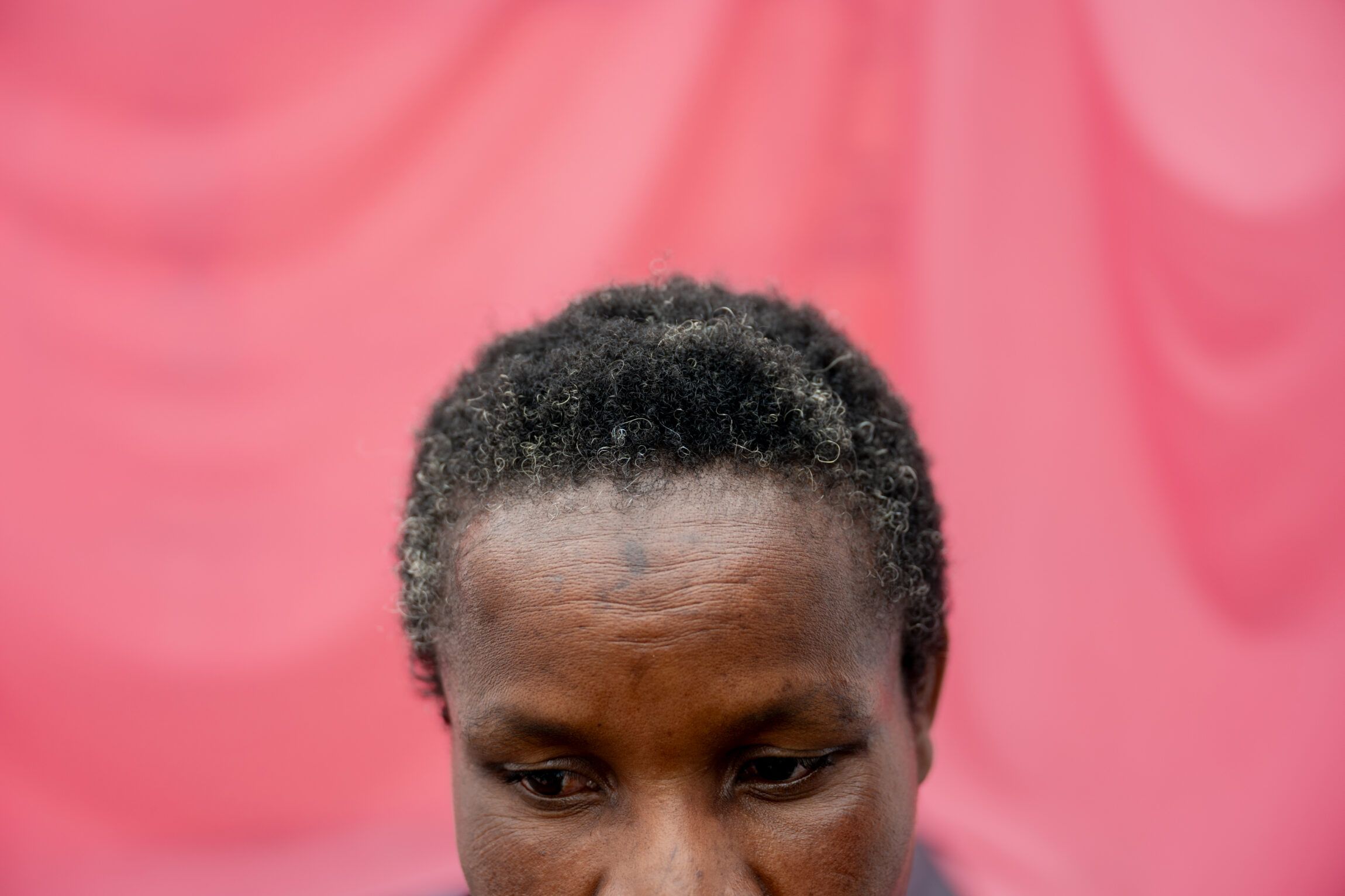
40-year-old Faruha fled her village after her husband was killed by soldiers.
She arrived at the camp six months ago, carrying her late husband’s child.
In April, when she was four months pregnant, she went into the forest to collect wood. There, she was attacked.
“The hardest part is that I don’t have a job. So I had to go into the forest for wood to survive.”
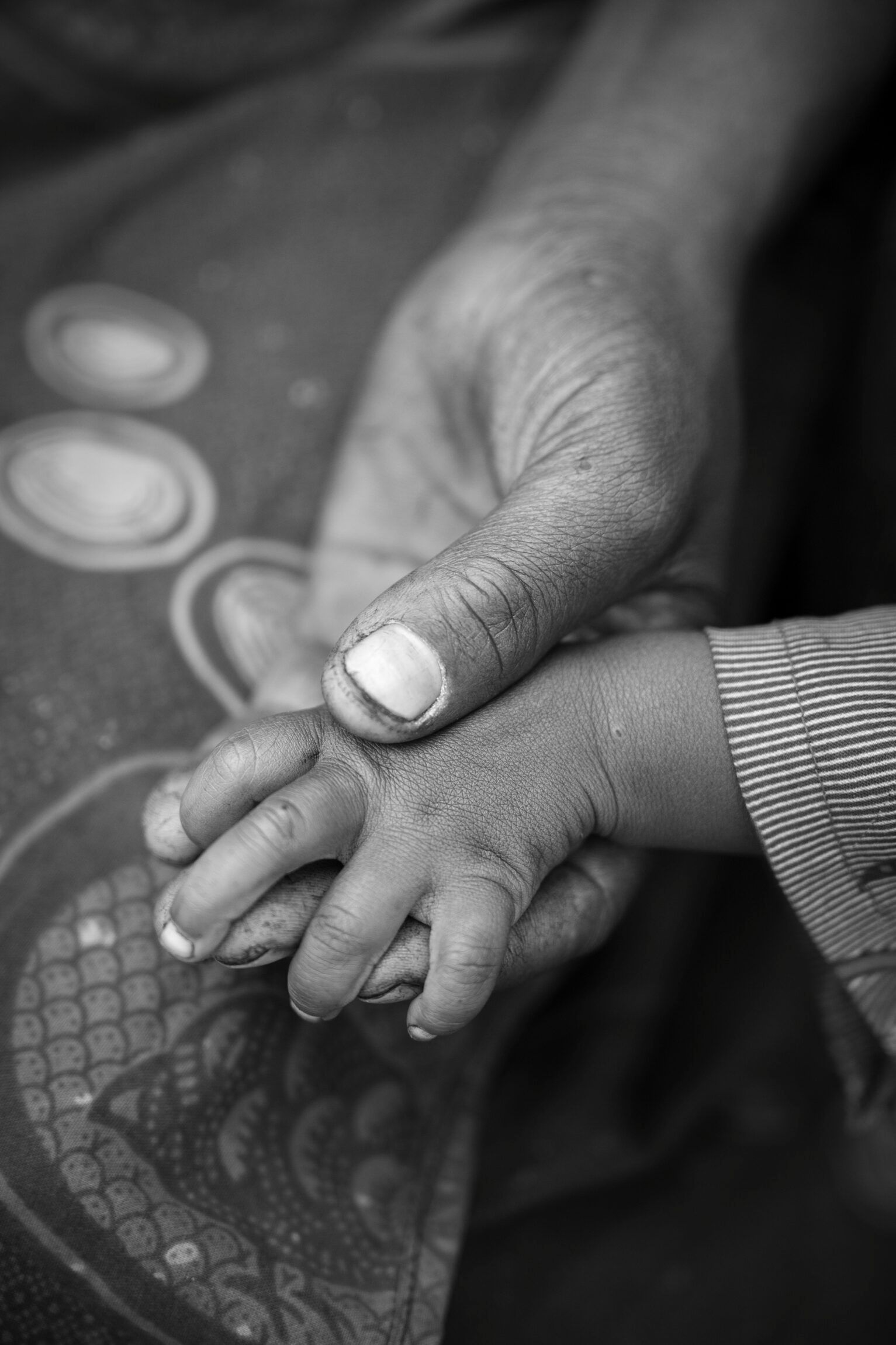
“I don’t understand how I and my unborn child are still alive after what happened. Right now, my biggest hope is that I can go to the hospital when I have my baby.”
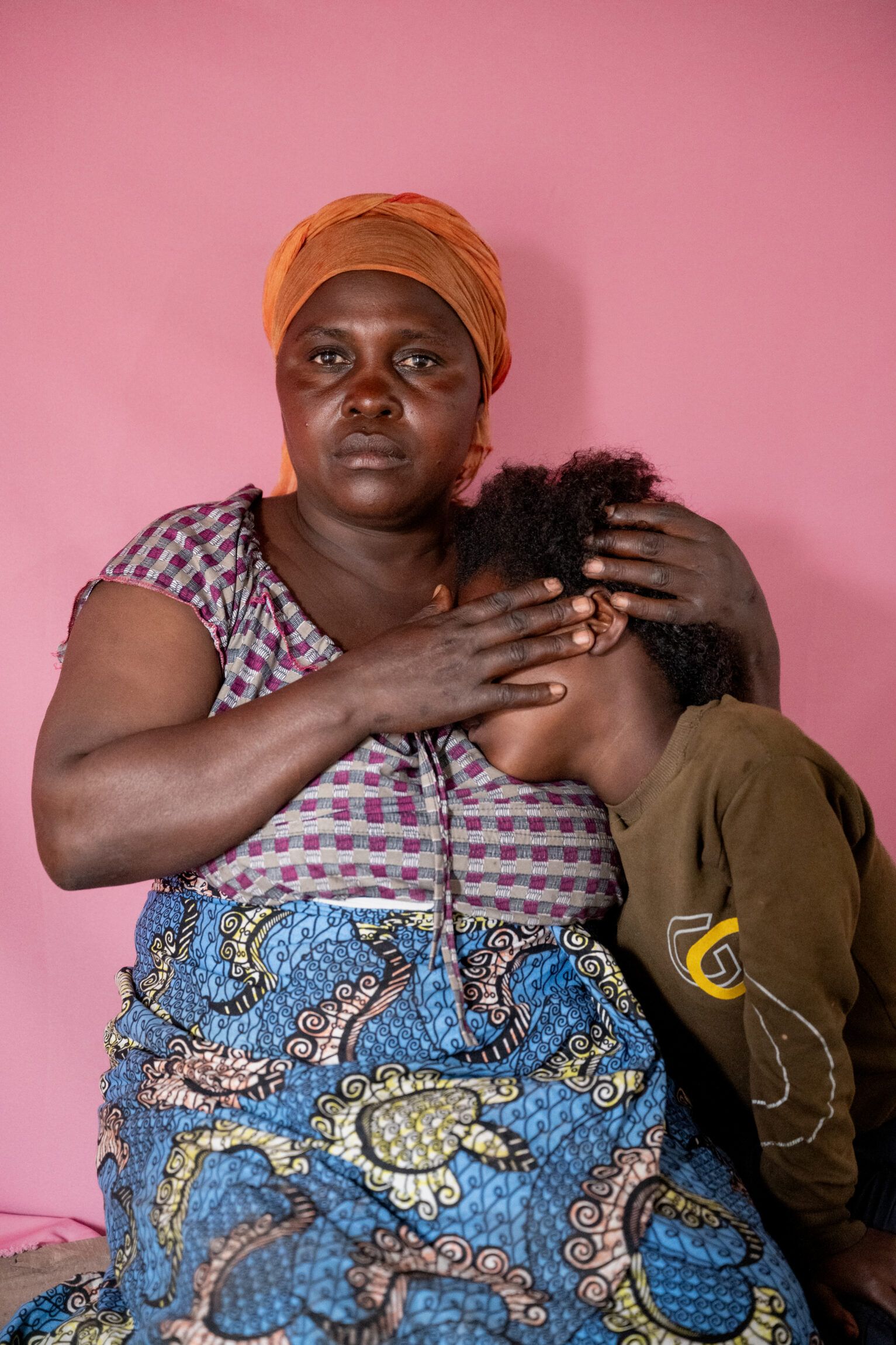
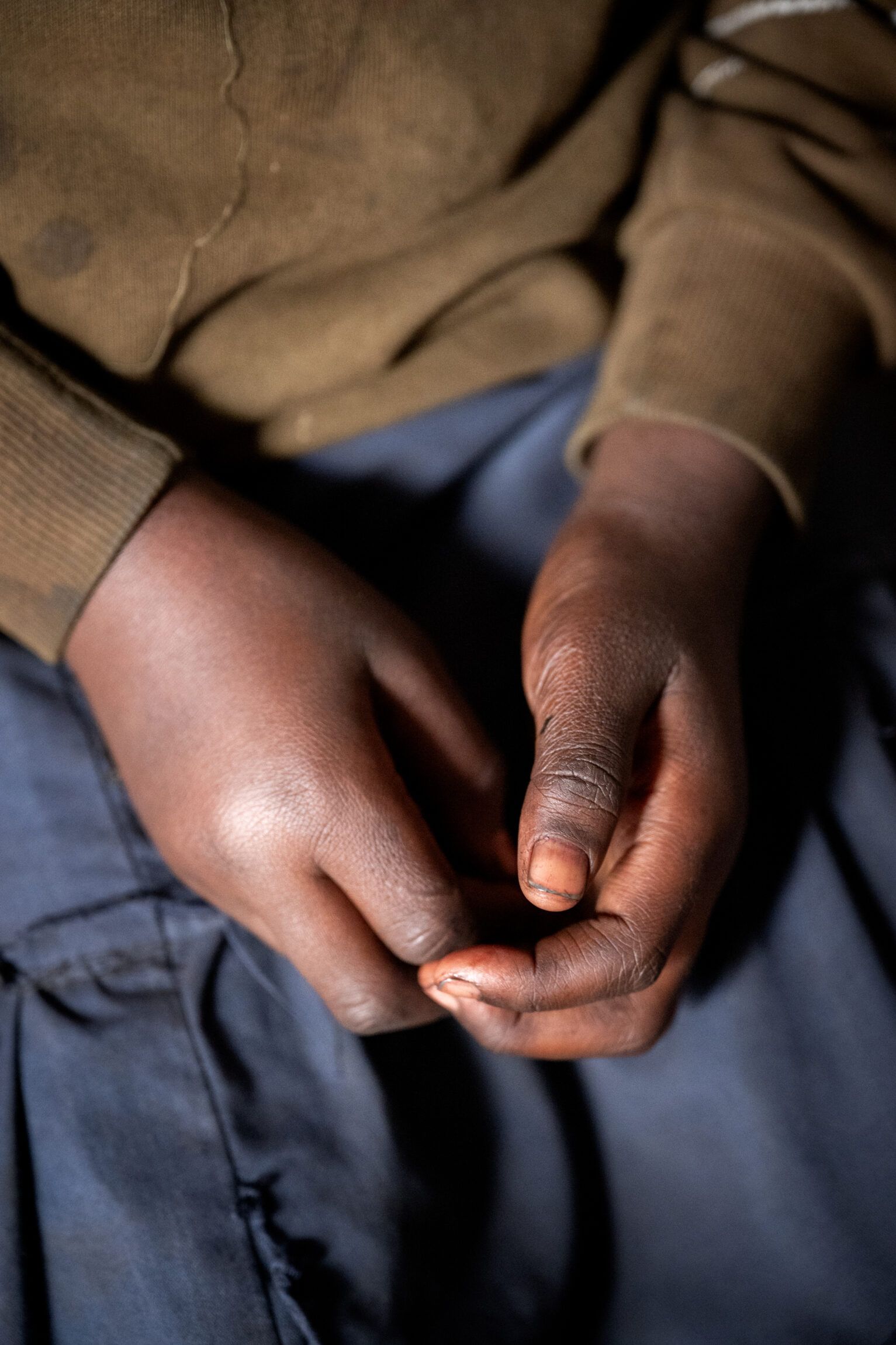
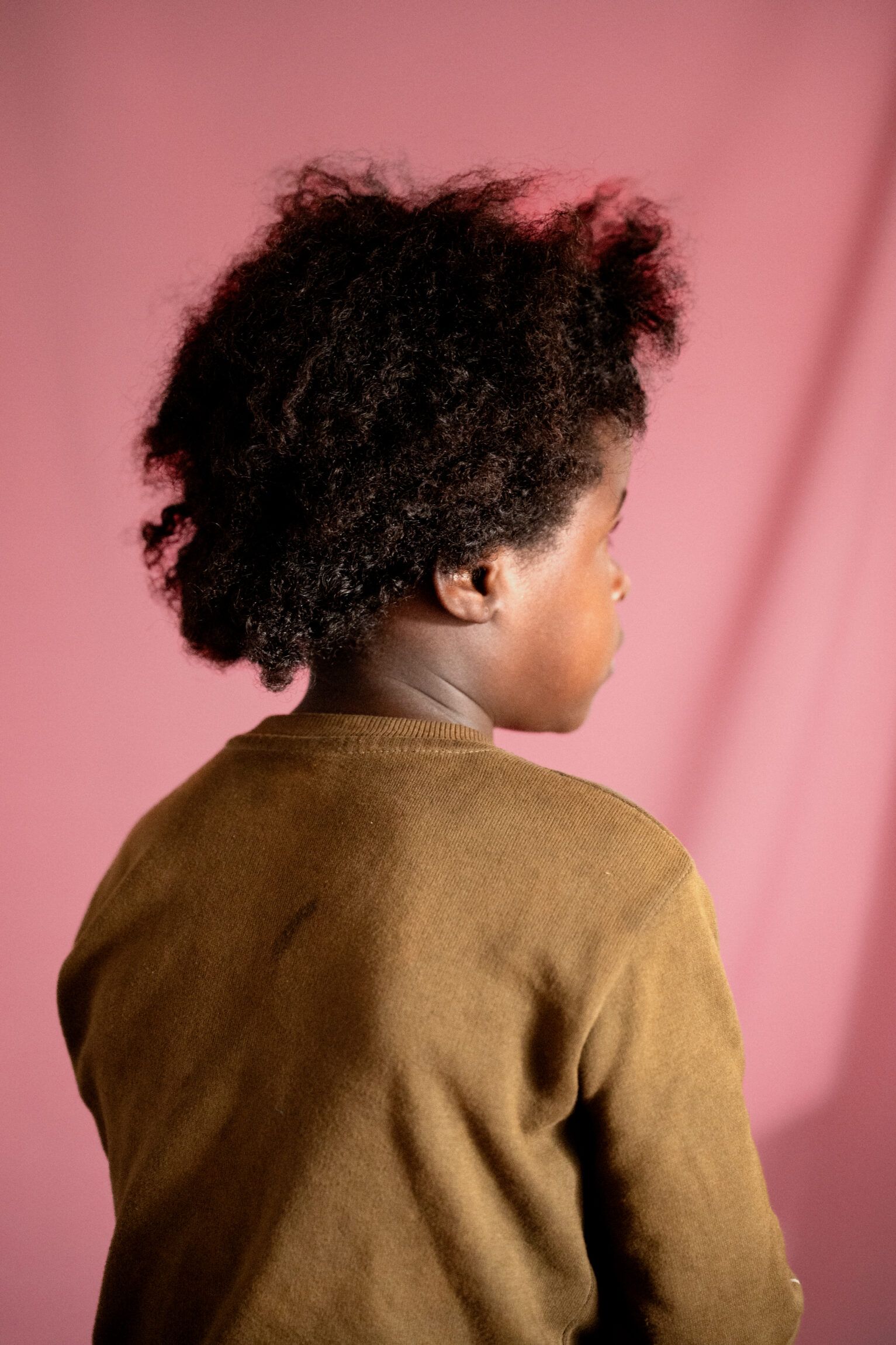
Ten-year-old Asante
It was a soldier wearing a helmet and covering his face. He was the one who attacked me.Asante
When ten-year-old Asante and her family fled to the camp in February, she had been shot in the leg a few weeks earlier. That’s why she couldn’t run away when she and a group of other children went into the forest to find food one day in April.
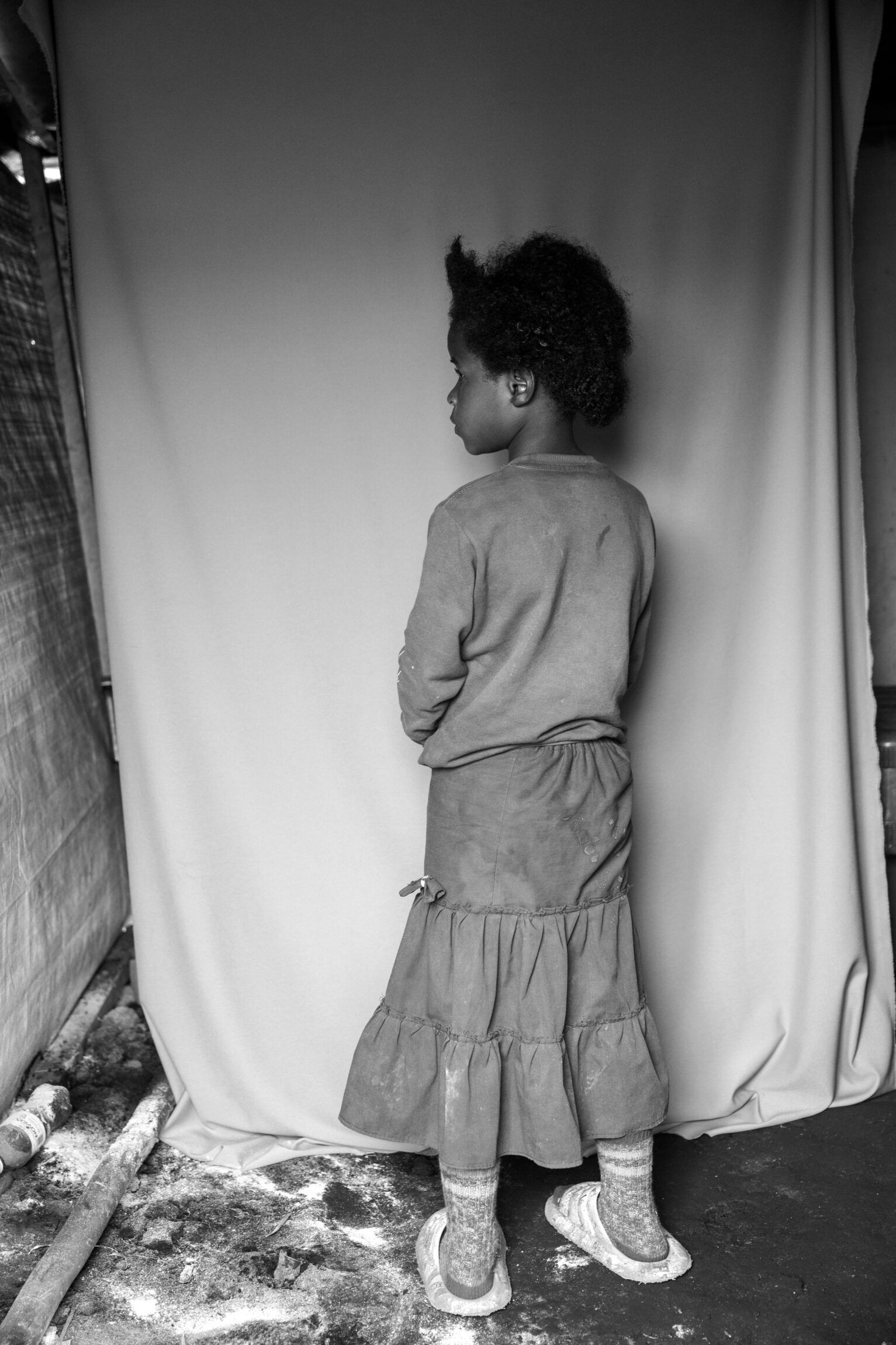
Ombedi says that Asante is bullied by the other children because she has ‘slept with a soldier’.
“My daughter is re-traumatised when the other children tease her. And every time she sees a soldier.”
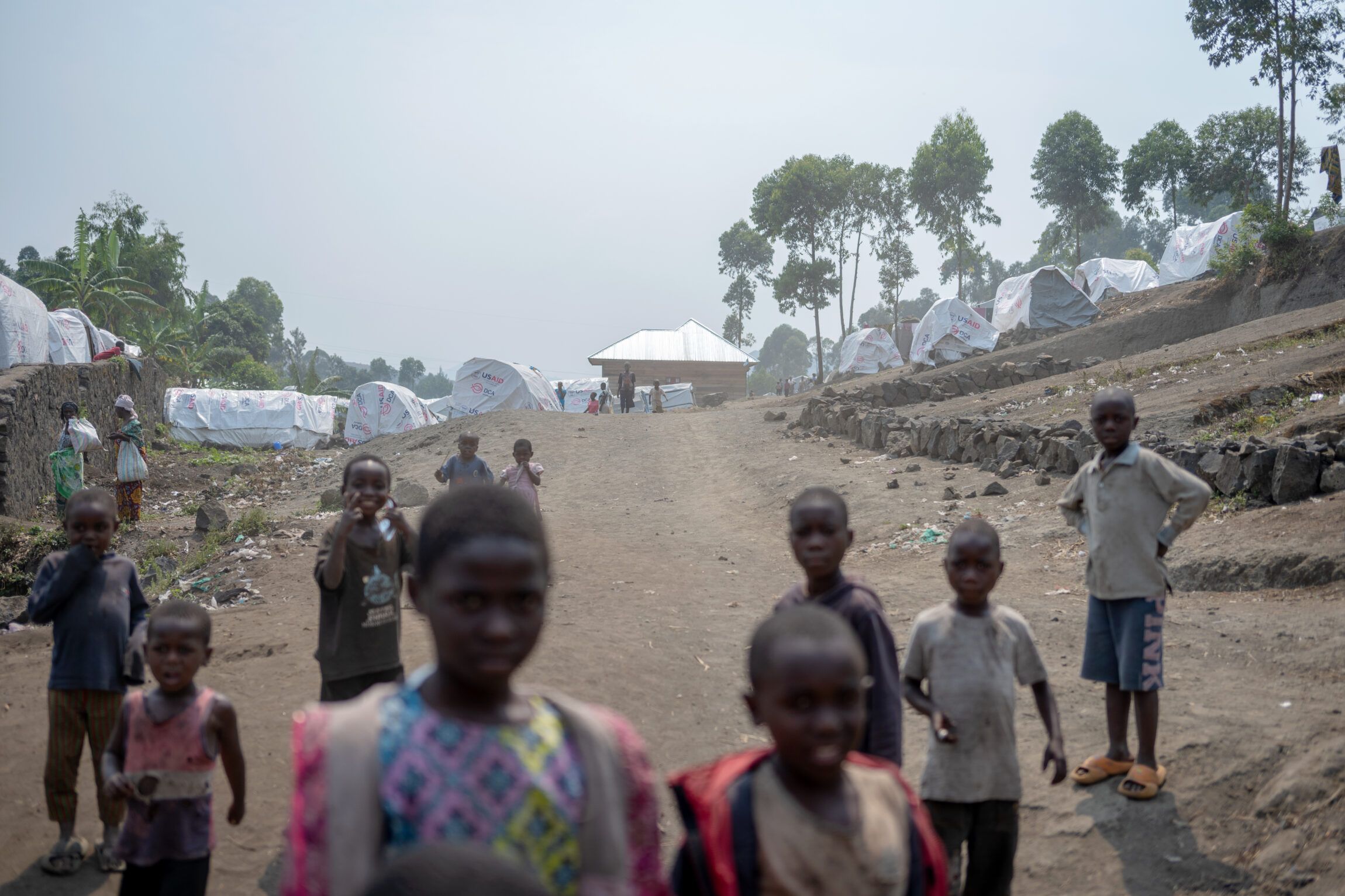
Lushagala camp, where Asante and her mother live, is home to around 60,000 people who have all fled the armed conflict.
DanChurchAid has built 3,500 shelters in the camp.
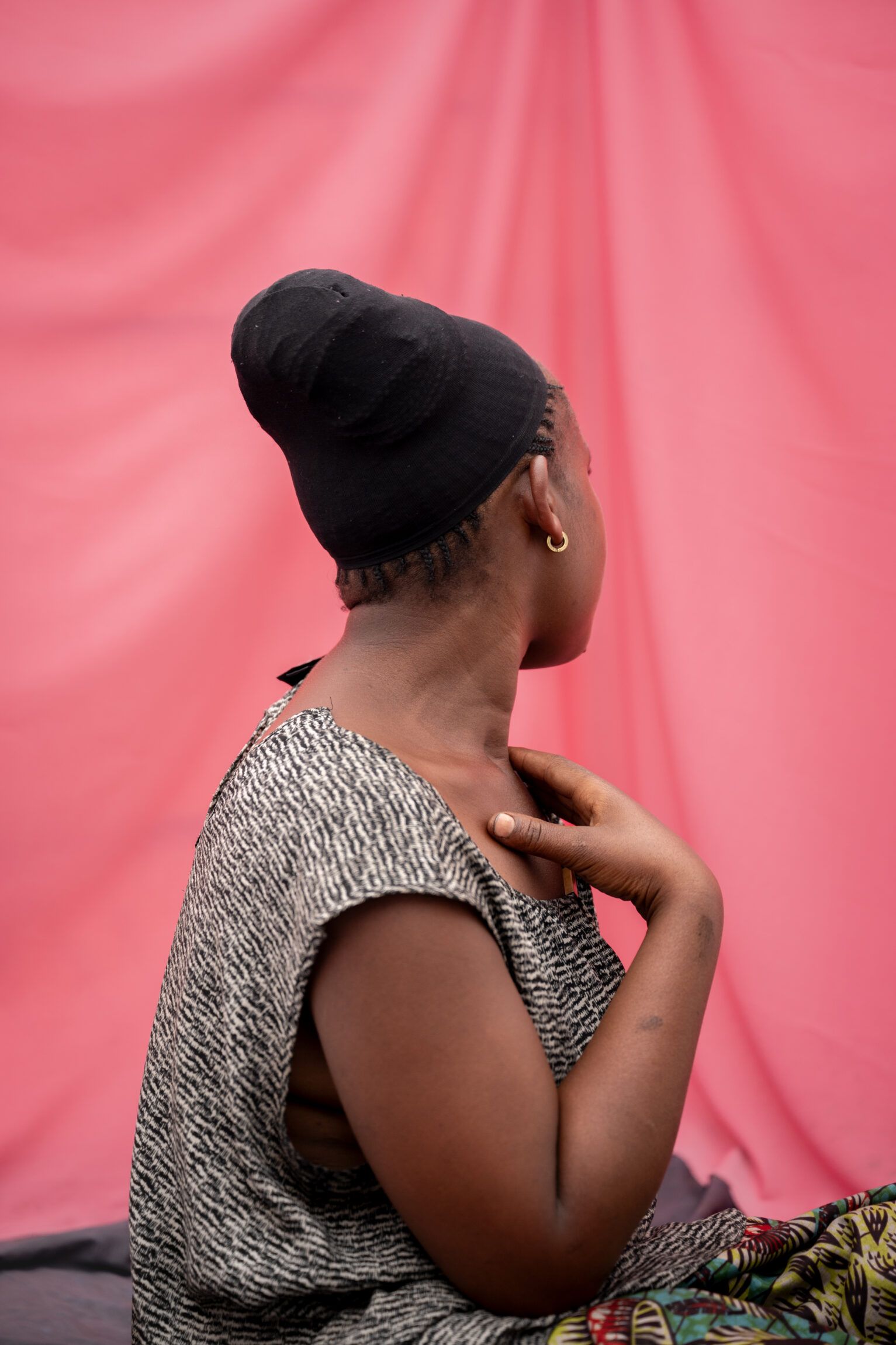
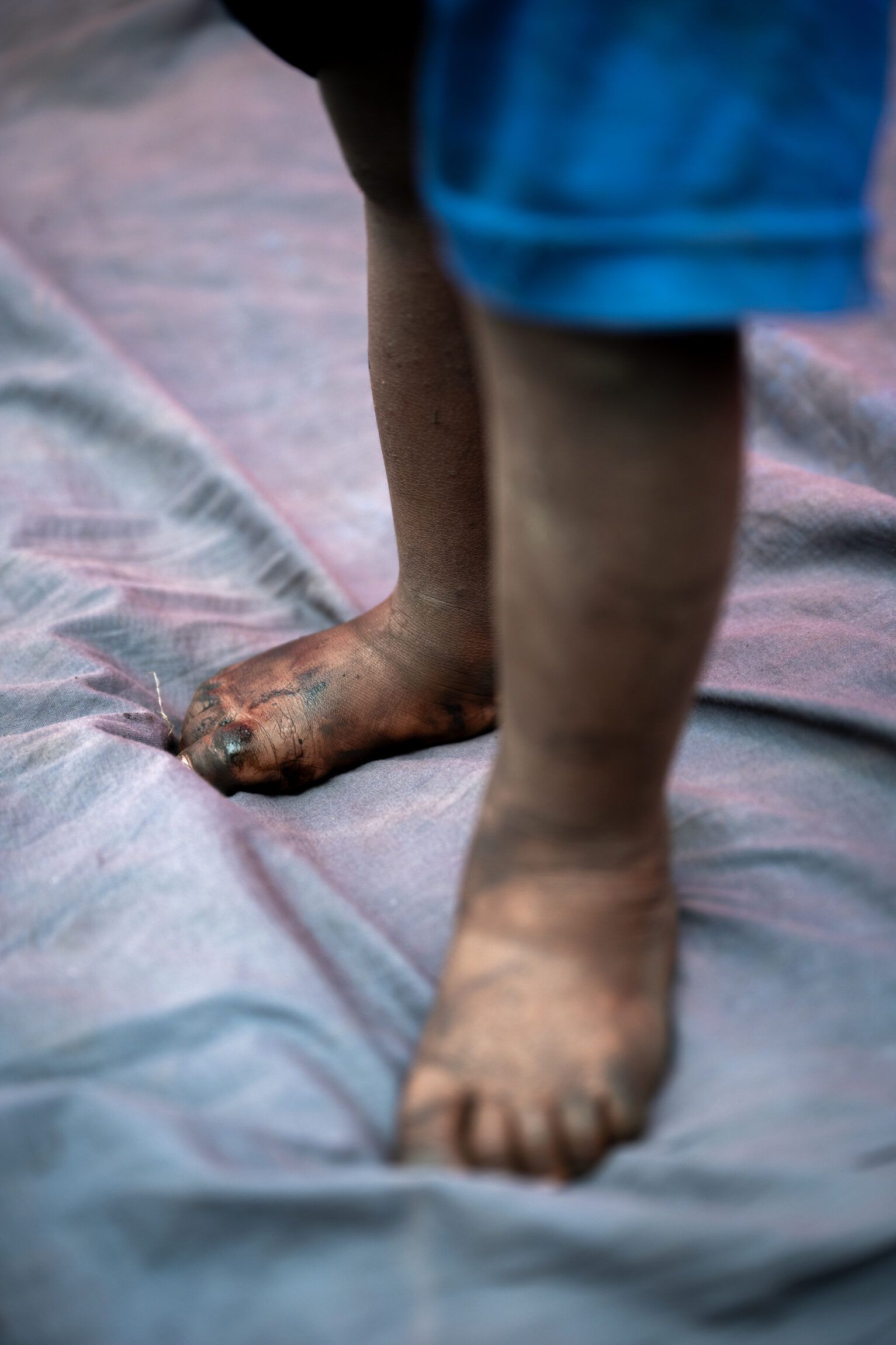
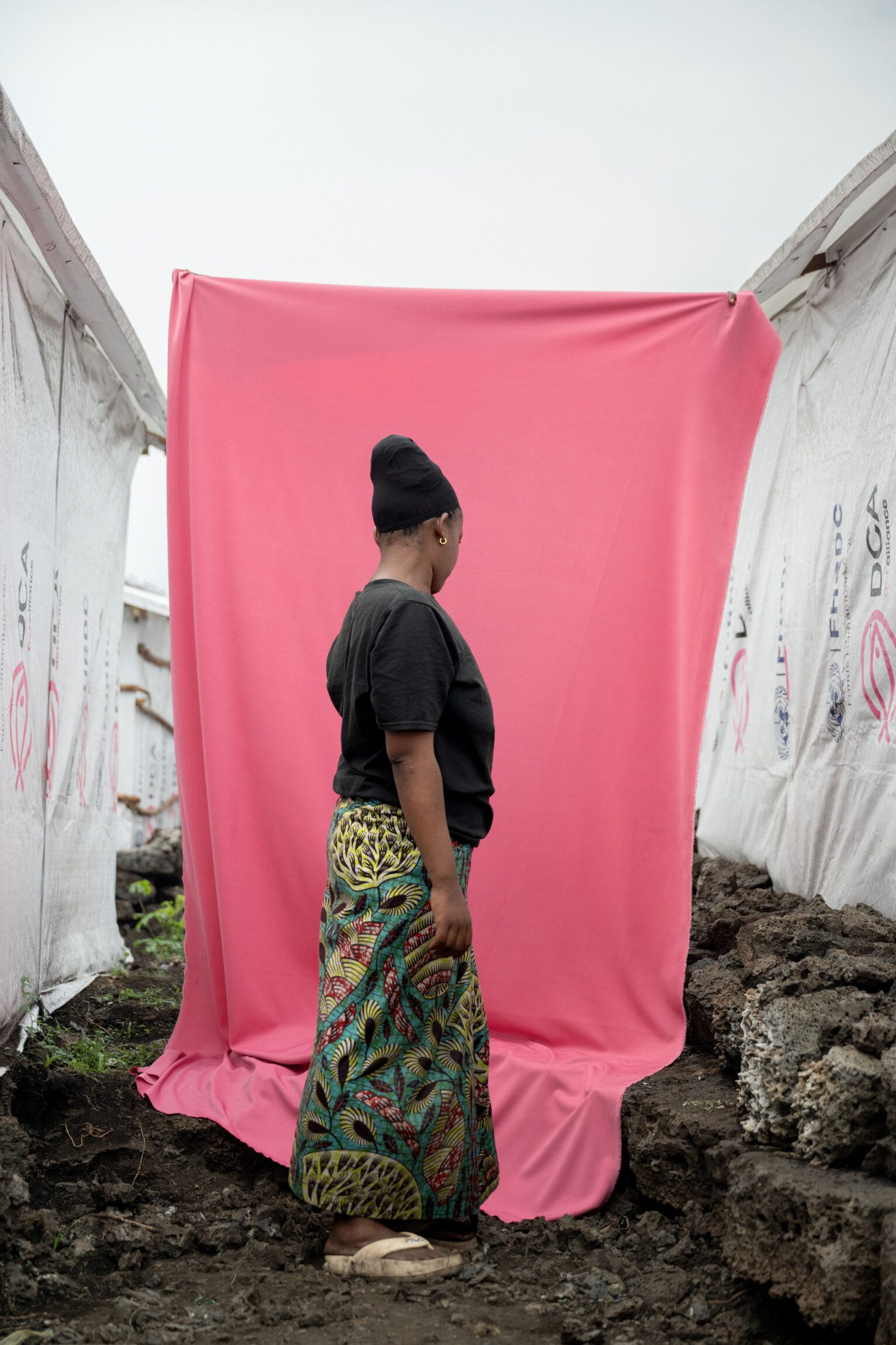
30-year-old Asnat
I have never gone back to the place where I was raped. I will never go into the woods again. I would rather starve than go into the woods.Asnat
Asnat was also out looking for wood when she was attacked by men with guns and machetes in June.
Asnat lives alone with her two-year-old son. The armed conflicts and violence in DR Congo tear families apart. Asnat’s story is no different.
Six months ago, the M23 attacked her village. She was in the field with her son while her husband and their three daughters, aged nine, seven and five, were at home. Asnat fled to the camp alone and has no idea if her husband and girls are alive.
I think about my girls every day. It’s hard to forget someone you gave birth to. I hope the war will end and we will be reunited, but I don’t think I will ever see them again.Asnat
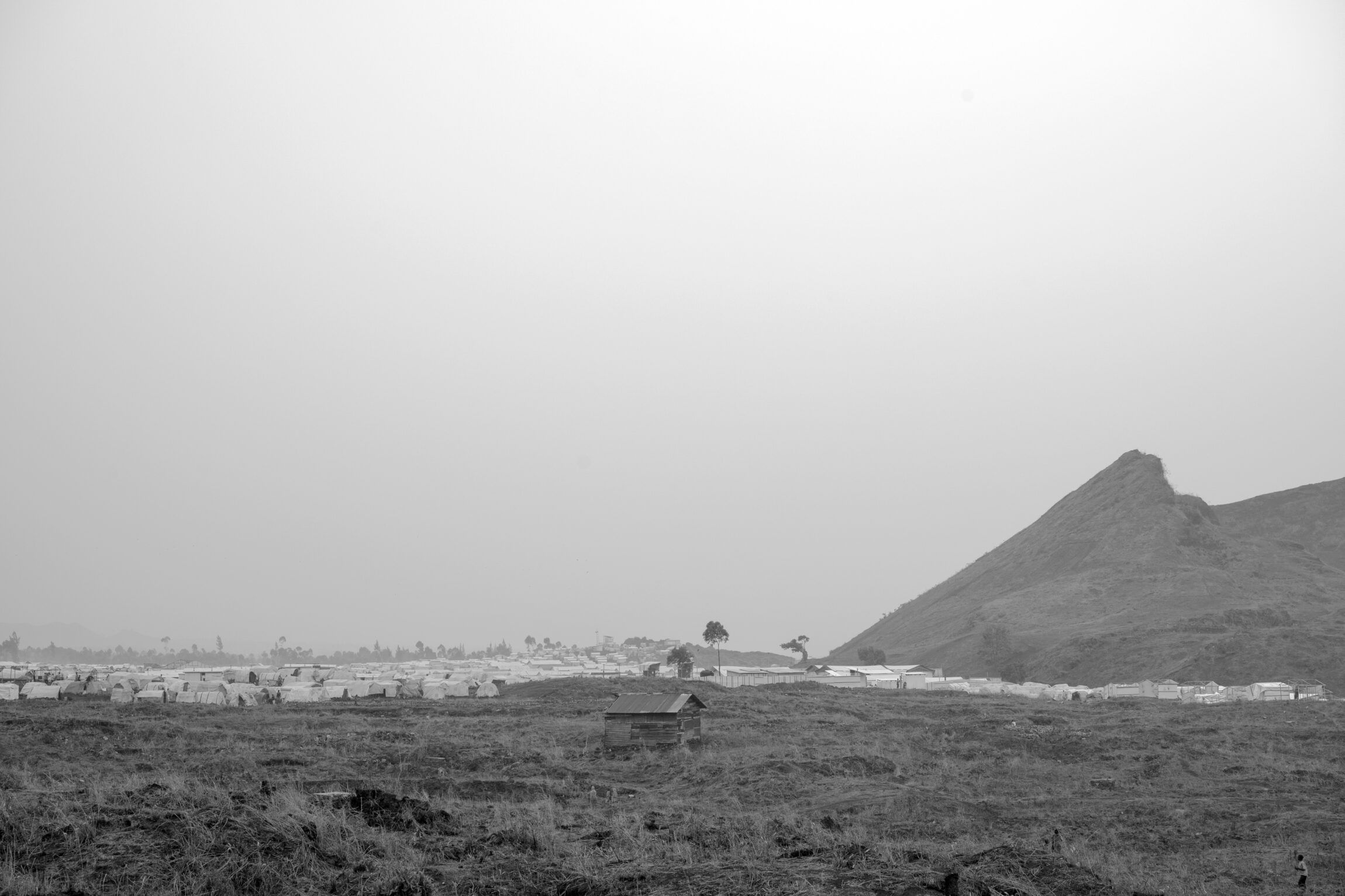
“If you try to resist, you will be killed. This has happened to many women and girls here,” says Asnat.
The situation in DR Congo
DR Congo is home to more than 105 million people and has been plagued by war and conflict for decades. Since the 1990s around six million people have lost their lives. Today about 1 in 4 needs humanitarian aid in the country.
In 2023 the armed conflict between the rebel group M23 and the Congolese army escalated in eastern DR Congo.
More than 6.3 million people are currently displaced – and one million Congolese has crossed the border into Uganda and Tanzania in search of safety.
The ongoing violence has destroyed many societies and created an environment where the number of cases of sexual violence and incomprehensible abuse is on the increase. Especially women and children are at great risk of abuse, rape, and exploitation.

